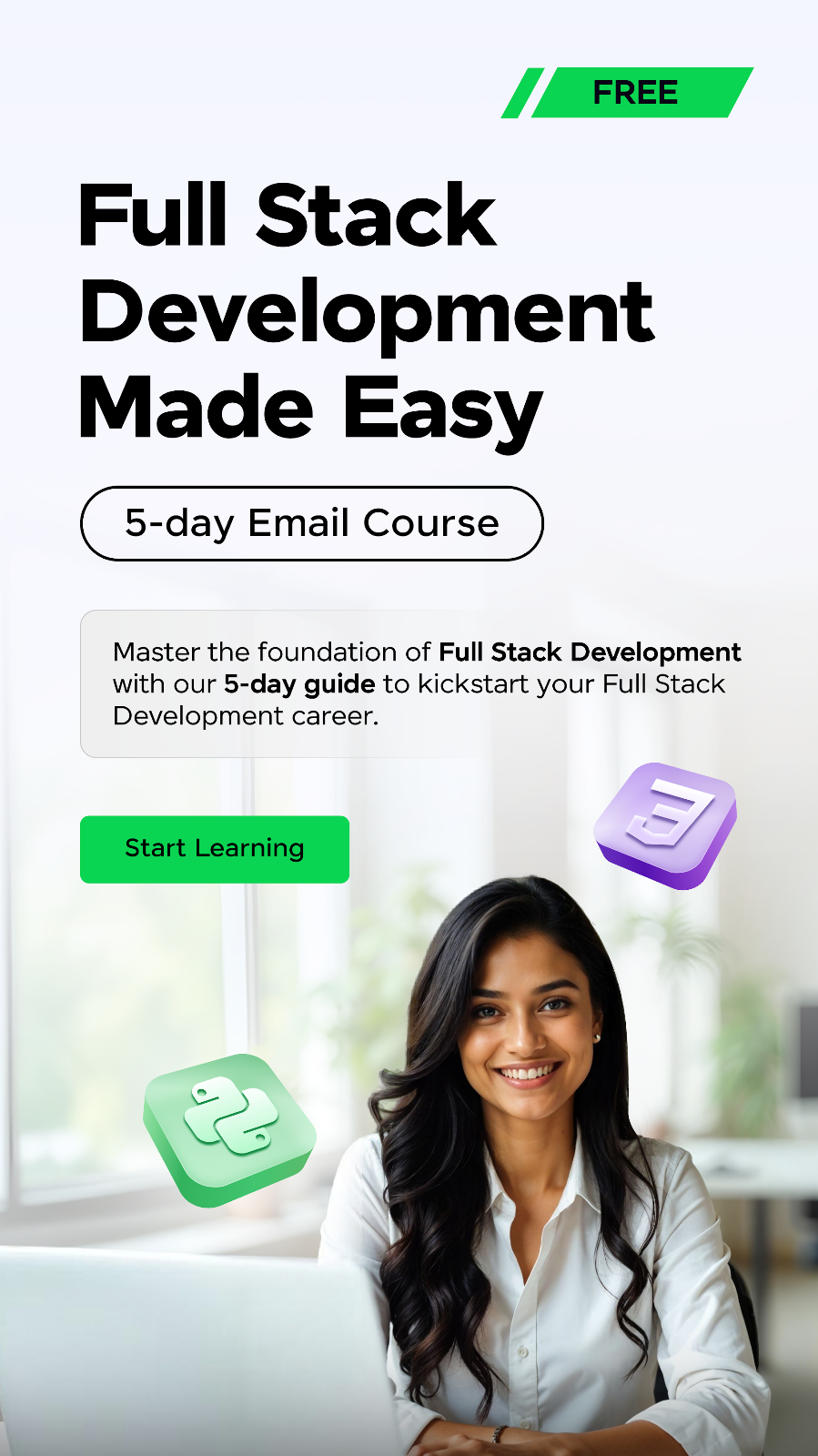![Top 10 NodeJS Project Ideas for Beginners [With Source Code] 1 Post thumbnail](https://www.guvi.in/blog/wp-content/uploads/2024/10/NodeJS_Project_Ideas.png)
Top 10 NodeJS Project Ideas for Beginners [With Source Code]
Apr 24, 2025 4 Min Read 4258 Views
(Last Updated)
Are you ready to level up your Node.js skills with hands-on projects? Building real-world applications is the best way to learn and advance in a new skill. If you’re either starting your Node.js journey or looking for exciting ideas to test your skills, you’re in the right place!
In this blog, we will explore the top 10 NodeJS project ideas for beginners. This blog lists project ideas from basic to advanced levels. Plus, we are not just giving you the ideas; we will also provide you with source code for each project to help you get started quickly. So, let’s dive into these projects!
Table of contents
- What is Node.js?
- Top 10 NodeJS Project Ideas for Beginners
- Portfolio Website
- TodoList App
- Book Management System
- URL Shortener
- QR Code Generator
- Expense Tracker
- Quiz App
- Real-time Chat Application
- Bot Application
- Clone Application
- Conclusion
- FAQs
- What are the easy NodeJS project ideas for beginners?
- Why are NodeJS projects important for beginners?
- What skills can beginners learn from NodeJS projects?
- Which NodeJS project is recommended for someone with no prior programming experience?
- How long does it typically take to complete a beginner-level NodeJS project?
What is Node.js?
Node.js is a popular and powerful open-source runtime environment for JavaScript that can run on Windows, Linux, Unix, macOS, and more. It allows developers to build web applications and server-side applications. It is popular because of several reasons, which include being lightweight, fast, scalable, and efficient. Because of its versatility, efficiency, and large ecosystem of libraries and modules available through npm, Node.js has become the best choice for developers.
Top 10 NodeJS Project Ideas for Beginners
This section contains the top 10 NodeJS project ideas ranging from easy to difficult level. We will present each project idea with an estimated time taken to build it, its difficulty level, tech stack to use, deployment guidance, learning outcome and Node JS version. Don’t forget we will also provide the source code that is hosted in GitHub. So, let’s get started!
1. Portfolio Website
A portfolio website is a personal website for you to showcase your skills, education, projects and achievements. It serves as a digital resume to showcase your skillset to the recruiters. You can include as many as web pages in your portfolio website including your contact information. This website can be achieved using Node JS allowing developers to build dynamic websites.
Time Taken: 4 hours
Difficulty Level: Easy
Tech Stack: Node JS, Express JS, HTML, CSS, JavaScript
Node JS Version: >= v14.x
Learning Outcome: Experience with backend server setup, static files and rendering dynamic content in a Node JS environment.
Deployment: Deploy using Heroku
Source Code: Portfolio Website
2. TodoList App
A TodoList app is a simple application where users can add, edit and delete the tasks. This app beautifully demonstrates the use of front-end and back-end integration where the backend is used to store and retrieve the tasks details.
Time Taken: 3 hours
Difficulty Level: Easy
Tech Stack: Node JS, Express JS, MongoDB
Node JS Version: >= v14.x
Learning Outcome: Experience in how to implement CRUD operations, interact with NoSQL databases and handle user input and validation.
Deployment: Heroku
Source Code: TodoList App
3. Book Management System
A book management system is a web application that allows users to add, edit, update, and remove books from a library database. It includes features such as filtering by author names, searching by book name, and sorting in ascending or descending order. This is a good project for developers to understand the management of relational databases through a backend server.
Time Taken: 4 hours
Difficulty Level: Medium
Tech Stack: Node JS, Express JS, MySQL, REST API
Node JS Version: >= v21. x
Learning Outcome: Gain experience in working with relational databases and APIs
Deployment: Digital Ocean
Source Code: Book Management System
4. URL Shortener
URL shortener is a famous project among developers. It is a service that allows users to shorten long URLs into a more manageable form that can be shared easily. It uses a database to store the original URL and the shortened version.
Time Taken: 2 hours
Difficulty Level: Easy
Tech Stack: Node JS, Express, MongoDB
Node JS Version: >= v21. x
Learning Outcome: Learn to generate unique URL slugs, interact with a database and redirect URLs
Deployment: Vercel
Source Code: URL shortener GitHub Code
5. QR Code Generator
A QR Code Generator allows users to input a text or any URL, and then it generates a corresponding QR code. This project teaches you how to integrate third-party libraries and APIs to process the input and display the QR.
Time Taken: 2 hours
Difficulty Level: Easy
Tech Stack: Node.js, Express, QRCode.js
Node JS Version: >= v21. x
Learning Outcome: Learn to use external libraries and create dynamic content for the web
Deployment: Heroku
Source Code: QR generator on GitHub
In case you want to learn more about NodeJS and Full-stack development, consider enrolling in GUVI’s Full-stack development course that teaches you everything from scratch and equips you with all the necessary knowledge!
6. Expense Tracker
An Expense tracker application helps users to monitor their spending by tracking their expenses. It will help to categorize the expenses, show transaction history, and generate reports based on their spending habits.
Time Taken: 4 hours
Difficulty Level: Medium
Tech Stack: Node JS, Express JS, MongoDB
Node JS Version: >= v21.x
Learning Outcome: Gain experience in building and managing a full-stack application
Deployment: Vercel
Source Code: GitHub Source code
7. Quiz App
A Quiz app allows users to take quizzes on various topics and see their scores. It presents questions and answers that are dynamically pulled from the database. It also includes time limits, randomized questions, and user authentication for tracking.
Time Taken: 3 hours
Difficulty Level: Medium
Tech Stack: Node.js, Express, MongoDB
Node JS Version: >= v14. x
Learning Outcome: Learned to handle user sessions, scoring, and time limits in an interactive application
Deployment: Vercel
Source Code: GitHub Source Code
8. Real-time Chat Application
A real-time chat application allows users to send and receive messages instantly with features such as group chats and one-to-one chats. This application uses WebSockets to handle a real-time connection between two users.
Time Taken: 5 hours
Difficulty Level: Advanced
Tech Stack: Node.js, Express, Socket.io, MongoDB
Node JS Version: >= v21. x
Learning Outcome: Gain experience in real-time communication, sockets and building persistent connections
Deployment: Netlify
Source Code: GitHub Source Code
9. Bot Application
A bot application automates tasks such as answering user questions or providing information based on user input. This application can then be integrated with messaging platforms such as WhatsApp, Telegram, or Discord.
Time Taken: 6 hours
Difficulty Level: Difficult
Tech Stack: Node.js, Express, Bot API (Telegram/Discord/WhatsApp API), Natural Language Processing libraries
Node JS Version: >= v21. x
Learning Outcome: Learn to build conversational bots, integrate external APIs and process user input with machine learning
Deployment: Heroku/Netlify/Vercel
Source Code: GitHub Source Code
10. Clone Application
A clone application is a mimic of an existing popular application, such as Instagram, Twitter, and YouTube, with its functionality and features. This is an excellent way to learn how complex applications are structured and work.
Time Taken: 8 hours
Difficulty Level: Advanced
Tech Stack: Node.js, Express, MongoDB, Firebase, WebSockets (for real-time updates), JWT for authentication, React JS
Node JS Version: >= v21. x
Learning Outcome: Gain experience in building and managing full-stack applications, handling media uploads, and real-time updates
Deployment: Netlify
Source Code: YouTube Clone source code
Conclusion
In conclusion, building projects that solve real-world problems is the key to mastering a skill. Similarly, creating various projects in Node.js with different difficulty levels is the way to become an expert in Node.js. With the help of the top 10 Node.js project ideas listed above, you will master full-stack development, including deployment and version control systems.
FAQs
Some easy NodeJS projects include creating a Books Directory, a Basic User System, or a Web Scraper. These projects are simple and help you understand NodeJS fundamentals like APIs, user authentication, and working with external data.
Working on NodeJS projects helps you build real-world skills, including backend development, API creation, and database management. It’s a practical way to apply what you’ve learned and solidify your understanding.
Beginners can learn how to handle HTTP requests, build REST APIs, work with databases, manage user authentication, and use real-time frameworks like Socket.io.
The Books Directory or Basic User System is are great starter project for those with no prior experience, as they teaches you the basics of CRUD operations and API development.
The time depends on the complexity, but most beginner-level projects can be completed within 5-10 hours.























![10 Unique Keras Project Ideas [With Source Code] 4 Keras Project Ideas](https://www.guvi.in/blog/wp-content/uploads/2024/10/Feature-Image.png)
![9 Compelling Project Ideas for Frontend Development [With Source Code] 5 Feature image - Comprehensive List of Project Ideas for Frontend Development](https://www.guvi.in/blog/wp-content/uploads/2024/02/9-Compelling-Project-Ideas-for-Frontend-Development-With-Source-Code.webp)

![Top Full Stack Web Developer Coding Projects in 2025 [With Source Code] 7 full stack web developer coding projects](https://www.guvi.in/blog/wp-content/uploads/2021/10/Top-Full-Stack-Web-Developer-Coding-Projects-With-Source-Code.png)
![Top 10 React Native Project Ideas [With Source Code] 8 React Native Project Ideas](https://www.guvi.in/blog/wp-content/uploads/2024/10/React_Project_Ideas.png)



Did you enjoy this article?